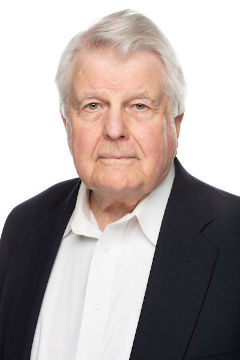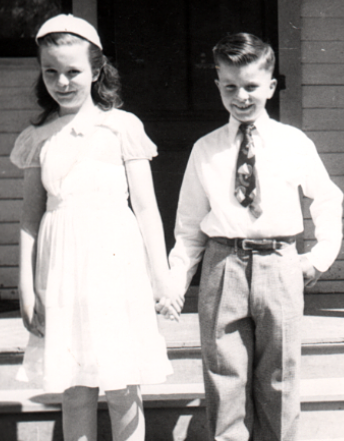Humanism, A Simple Pathway to Follow
Humanists were the bad guys while I was in college. I graduated from St. John’s University in 1961, and throughout my (MN) four years as an undergrad, humanists were the adversary. Godless. Arrogant. Self-centered. A haven for atheists. They were a threat to Christianity. Nobody knew how to be Christian better than Catholics. Nobody knew how to be better Catholics than Benedictines. St. John’s was Benedictine.
I got caught up in the fray against the Humanists. How could one possibly expect people to behave morally if not by adherence to Christian beliefs. All hell would break loose. Mankind’s baser instincts would take over, and the world would degenerate into chaos. Mr. Hyde let loose.

The whole business came back into my awareness as realized I wanted to change the subtitle to my web site. I was uncomfortable with the legend, “Poet – Novelist – Reviewer,” as it appeared. I didn’t like proclaiming myself among the ranks of Dylan Thomas, William Butler Yeats, William Carlos Williams, to name just a few I admire greatly. I felt the same way about dubbing myself novelist. The two novels I have published hardly qualified me for a seat at the table with Tolstoy, Dickens, or Falkner.
I decided, as I often do, to get my wife’s opinion. “What if I just change the subtitle to ‘Writer – Reviewer – Commentator?” I asked
“Writer – Humanist,” my wife countered without looking up. She’s really good at that sort of thing.
Writer certainly fit, I thought. I do write. I even take pride in what I write. My wife, my children, and most of my friends don’t even read my stuff, but it’s out there, and I like a lot of it. Writing is a challenging pastime, a vehicle for self-discovery. As my good friend and fellow writer Philip Kenny said, “We are, for the moment at least, participating in the same pursuit with the greats –Dante, Shakespeare, Wordsworth, et al–sharing the same spiritual space with them.” The hobbyist writer wants like fury to be recognized but also realizes there are so many who are so much better that it is enough to simply breathe the same inspirational air as the greats. After all, I played golf never expecting to be as good at it as Tiger Woods.
Not Quite Sure I was One . . .
Humanist? I had not thought of that. I liked the sound of it immediately, although I wasn’t quite sure I was one. But as I read into it, the title speaks to my belief system. I am no longer Catholic. Some say a person never gets over being a Catholic. I have. I repudiate the manner in which I was brought up as a child. I love my parents, but I do not respect them for kowtowing the clergy and forsaking their own good judgment on major life decisions. I will continue to rail against the brainwashing of children that impresses upon them their unworthiness as humans and demands they abandon their reason in favor of a belief based upon preposterous myths. The catechism training system in the Catholic church exists to perpetuate the hierarchy and establish control over the laity. Children are drilled like pledges in a cult before they have experienced enough of life themselves to distinguish between myth and reality.
Confirmation is a sacrament in the Catholic church. Children of the given age are brought together to renew their baptismal vows in the presence of the congregation. It’s a big deal. In my day, kids get dressed all in white. The bishop comes to town and at some point in the ceremony he addresses the children and asks questions. I remember one session in particular. “What does the communion host look like?” the bishop asked and recognized one eager young girl who had her hand up.

“Bread,” she said standing up to reply.
“That’s right. And what does it taste like?” the bishop continued.
“Bread,” the girl replied.
“Right again. And, now, what is it?”
“Bread,” the girl replied and the congregation laughed as if they had tuned into Burns and Allen.
The bishop took the youngster’s answer in stride, smiling, and looked out over the adults assembled before he proclaimed, “No, my dear girl, as the sisters have taught you. The host is not bread. It is the body of Jesus Christ, your savior. When the priest consecrates the host during the Mass, it is changed into the body of Jesus Christ. You understand that don’t you.” the bishop asked rhetorically. A nun meanwhile had gracefully slid into the pew next to the young girl (nuns were good at graceful) and told her softly not to answer any more and to sit back down. The adults in the church cooed at how cute it all had been.
The young girl was cute. The communion host did look and taste like bread. Everyone was being instructed to ignore their honest perception and common sense and accept that, through some mumbo-jumbo, the wafer was changed. Of course, if they thought it about further, they would have realized communion was an act of spiritual cannibalism, that communion with the son of god was being made possible by consuming his flesh, yeah though these many years after his death. His death itself was an act of human sacrifice, a barbarous practice among pagans now perpetuated in solemn ritual central to the Catholic faith, sometimes with singing.
Rise to a Lot of Hypocrisy . . .
Better writers and clearer thinkers than I have made the point many times more powerfully than I in the case against the Catholic church. Folly for me would have been to continue to allow the clergy and the hierarchy to make my important life decisions for me and my children. Folly would have been to continue to believe in the whole body of the faith that is asked of Catholics. Most professing to be Catholic will admit privately they don’t either. If anything, strict faith in an open society gives rise to a lot of hypocrisy.
None of this is to say that I am an atheist. To my mind, an atheist believes that god does not exists, or at least the existence of god cannot be proved by empirical observation or study. I think the same. But if the existence of god cannot be proved by empirical evidence, it only follows the non-existence of god cannot be proven either. At this point in my life I accept that I cannot know. Sometimes I think it might be beyond the human mind to settle the question. In the meantime, I don’t think it makes any sense to assert that because we cannot prove how the universe began, or why destiny favors some and not others, or determine what is outside of the universe, god must therefore exist. An unproved speculation cannot be construed as proof that an opposing proposition is true. If statement A is not true, it doesn’t follow that statement B must be. I submit it takes greater moral courage to accept we do not have an answer to these questions than it is to espouse the primitive stories of our illiterate ancestors as if they are divine revelation.
Humanism is a far simpler way. Humanism starts with the golden rule: Do unto others as you would have them do unto you. Or, just as appropriate, “Don’t do unto others as you would not want done unto you.” Anything beyond this basic tenant is fluff and the stuff of good manners. Apologist for humanism will assert that empathy and compassion are heightened human nature. They argue we respond almost instinctively in condemning cruelty and praising goodness and mercy. Religion, on the other hand, has justified the slaughter of humans. Burning at the stake for heresy was clearly sadistic. Yet no impulses to stop these atrocities sprang spontaneously from the hearts of onlookers. If compassion and mercy resided as imbued traits in man’s nature, then religious and political beliefs overrule their expression and predictably quash action to intervene on behalf of those suffering.
Smug Satisfaction at Painful Writhing . . .
Further, I believe humans are capable of deliberate, calculated cruelty, individually and on a mass scale, and nothing within their nature prompts them to desist or intervene against those perpetuating an outrage such as genocide. That is not to say, however, that religion is responsible for altruistic, compassionate human behavior. Religion, as far as I know, has never stopped war, a purge, or a hanging. Clergy looked on with smug satisfaction at the painful writhing of those tortured or burned at the stake for not holding the acceptable opinion on the nature of the divine.
Take a man like Donald Trump. Opinions may vary about him, but history will undoubtedly prove he was not a kind, generous, respectful, truthful man. Nothing in his nature guided him to put the interest of others on the same level as his own. His need to promote himself out ruled any impulses to be compassionate. No great acts of kindness shine forth from his history.
The horrible truth is that hate can be fun. Hate groups enjoy their fellowship. They take pleasure in it. They try to outdo one another and commend one another on their villainous exploits. Members of hate groups are not all psychopaths. But just as with religion, the dictates of a shared feeling, racism, or belief overrides any promptings to be merciful flowing from their nature as humans.
It is more than clear from our history that we cannot rely on religion to keep the human race moral and overcome the repeated, vicious cycle of man’s inhumanity to man. No amount of prayer, worship, supplication, penance, or praise has made any difference. It can’t. It doesn’t work that way. Nor can we rely, as some insist, on the basic goodness of human nature to shine through and rescue us from our worst selves. It doesn’t work that way either. A good start would be eliminating religion. It won’t happen, of course, but having it out of the way would prevent atrocities from taking place that cultists claim pleases their god. It should all be much, much simpler. It may never be. It is for each person to choose. Keep it simple. Always tell the truth and treat your others the way you would want to be treated. For further guidance, please refer to the dress code.
